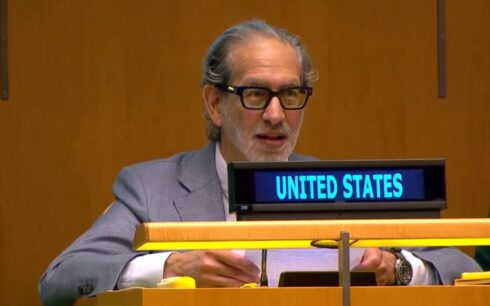Taliban on Tuesday criticized a newly adopted United Nations resolution on Afghanistan, saying it was drafted without their participation and reflects the political influence of certain countries. However, they indicated a willingness to review the resolution’s recommendations in line with “Islamic principles and national interests”.
In a statement issued by the Taliban’s Ministry of Foreign Affairs, Taliban said they welcomed parts of the resolution that acknowledge what they described as Afghanistan’s progress in security, counter-narcotics, humanitarian coordination, and economic development. But they rejected other elements, particularly those related to human rights and governance, as politically motivated.
“The Islamic Emirate views as positive those aspects of the resolution that acknowledge its achievements,” the statement read, while adding that certain parts were shaped “under pressure and directives of certain countries founded on the denial of ground realities.”
Taliban also said they were not consulted during the drafting or adoption of the resolution, which they argue undermines the accuracy and practicality of its content. “At neither the drafting nor adoption stages was the input of the Islamic Emirate sought,” the statement said.
Despite these objections, Taliban said they would assess the resolution’s recommendations and identify areas for potential cooperation.
The resolution, titled The Situation in Afghanistan, was adopted Monday during the 79th session of the United Nations General Assembly. It was introduced by Germany, Ireland and Sweden, and passed with 116 votes in favor, 12 abstentions, and two votes against, including from the United States.
The document draws on previous UN resolutions and reports by the Secretary-General and the Special Rapporteur on human rights in Afghanistan. It presents a broad overview of the country’s ongoing crises, with particular focus on the restrictions imposed on women and girls.
The resolution describes the Taliban’s policies toward women as “severe, widespread, systematic, and worsening oppression,” and cites bans on female education, employment, participation in non-governmental and international organizations, and freedom of movement. It warns that such restrictions amount to a structural system of gender-based discrimination that threatens Afghanistan’s future.





